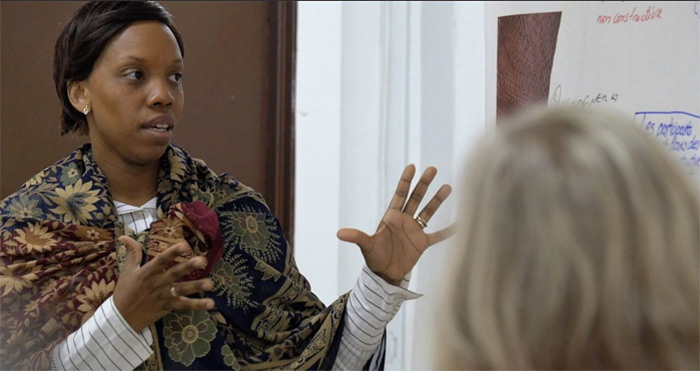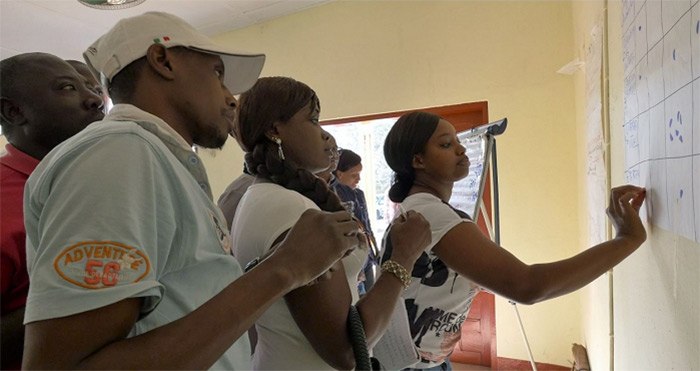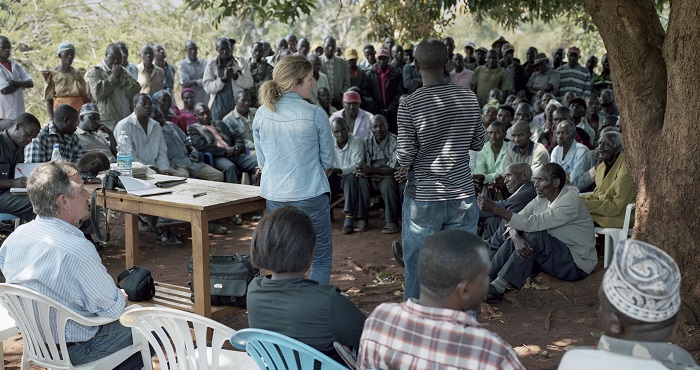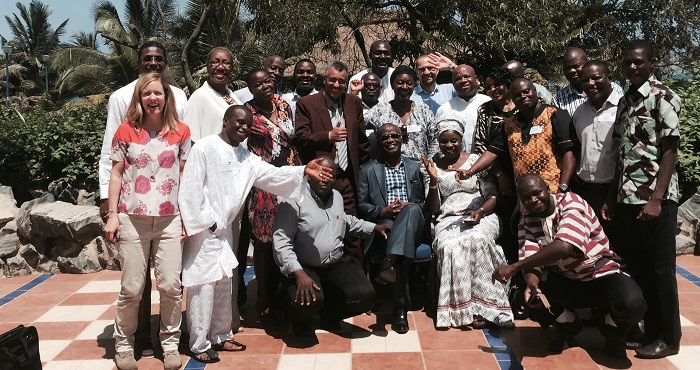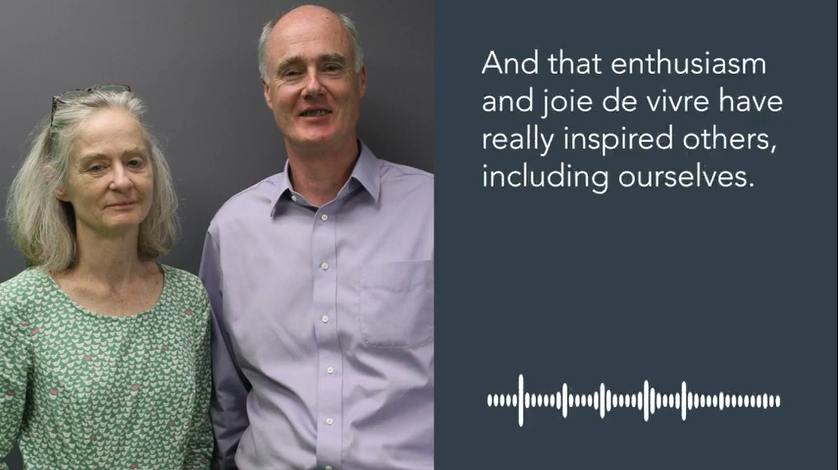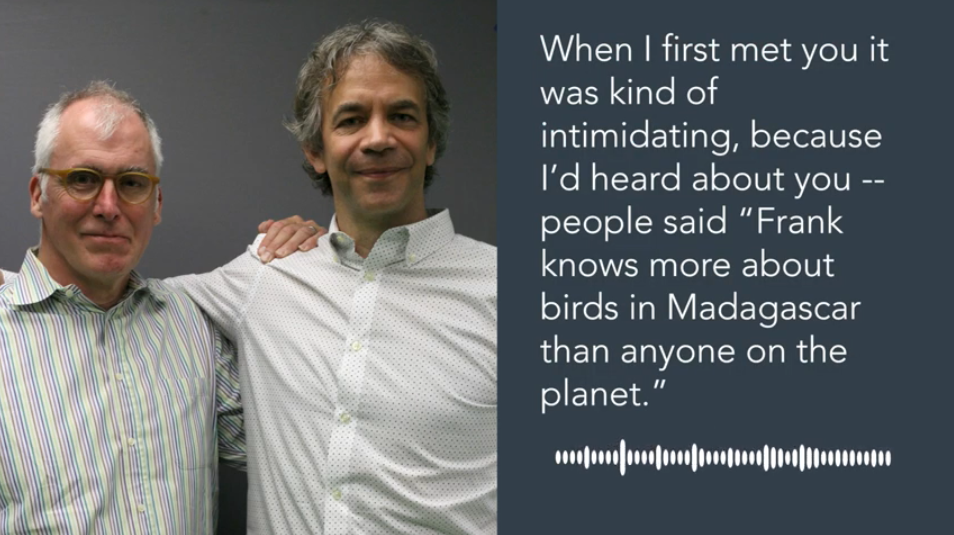Gina: What I’m hearing you say is you’re offering the bridge between the realities on the ground and international organizations wanting to come in and develop and address some of those economic and social challenges.
Mimi: Exactly, absolutely. I feel like I am a little bit of a glue, if you want to call it that. How about you, Gina? I’m curious to know how you became an ombudsman, what brought you to IFC?
Gina: I am from South Africa, born and raised. I studied law and I joined the Community Law Center, which was the first paralegal advice center in apartheid South Africa. I started working for a human rights firm in the Western Cape in the mid 90s. Most of my clients were farm workers working on the big wine farms, one of my first clients was a farm worker who had been unlawfully arrested by the South African police, thrown in jail without being charged, and was released three months later, and returned to retrieve belongings he had left on the farm and he was shot by the farmer. So, white farmer, black employee, very racially charged. Lots of anger, lots of hurt. We sued the South African police services, we sued the farmer, and we won the case. For me, it was such an enormous victory, but my client was really left feeling like the story was unfinished. He was never given the opportunity to learn about why he had been shot. He started asking questions and wanted to have a conversation with the farmer so he could have a better understanding so when he returned to his community he could hold his head up high and have some dignity. I was absolutely taken aback, because in the law you don’t sue for a conversation, you don’t sue for an apology. It started my questioning around justice and the law and I wondered if there was a bigger toolbox out there to serve my clients. My mentor at the time was doing a lot of work in mediation and he suggested I needed to go and be trained as a mediator. And so that started my journey into the space of trying to bring parties in conflict together rather than resorting to power and a power dynamic, finding a way to use dialogue and conversation to address the situation giving rise to the conflict.
Mimi: It’s very interesting to hear, looking at the psychological nature of the work, and not just relying on the law to make amends but really how you can get people to dialogue and to heal. So how about your personal life? Do you mediate in your personal life?
Gina: So I’m a mother too, I have two children, what’s fascinating for me is my son is 15 and going through the normal ups and downs of a teenager. I’ve started writing down some of the conversations I’m having with him because I am having to pull on every problem-solving, conflict-resolution fiber of my being in navigating a positive way of engagement. That’s what you do in conflict resolution, you look at ways of changing conversations and getting a common focus on the problem, not the person.
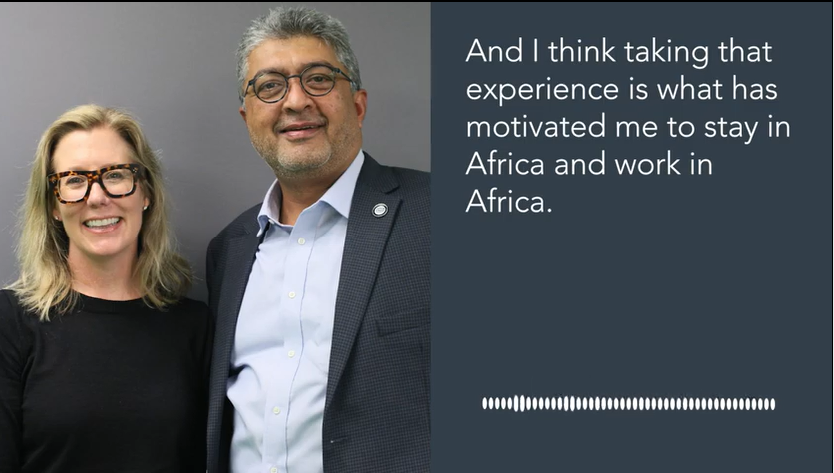 https://commdev.org/wp-content/uploads/2019/08/Satyam-Mary.png
473
834
James Frazier
James Frazier2019-08-05 11:49:172019-08-05 11:50:35Satyam Ramnauth & Mary Porter Peschka
https://commdev.org/wp-content/uploads/2019/08/Satyam-Mary.png
473
834
James Frazier
James Frazier2019-08-05 11:49:172019-08-05 11:50:35Satyam Ramnauth & Mary Porter Peschka
